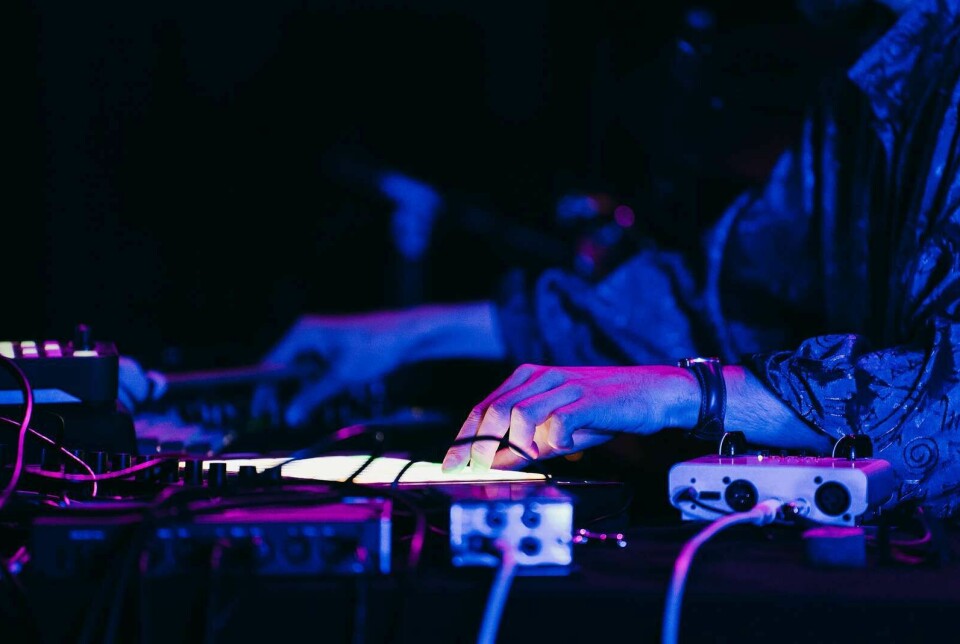THIS CONTENT IS BROUGHT TO YOU BY THE University of Agder - read more

“Artificial intelligence is not a threat to music”
Musicians have little to fear from artificial intelligence even if some types of jobs disappear. The most important thing is to protect the craft, believes researcher Steinar Jeffs.
Many artists and creative professionals are concerned that artificial intelligence (AI) may take over more and more tasks. For instance, several large companies have already used AI images in advertising campaigns instead of hiring illustrators.
“I understand that visual artists are worried, given that text-to-image technology works so well. But musicians want to make music regardless. The process itself holds value for them,” says Steinar Jeffs.
He is a researcher at the University of Agder's CreaTeMe centre.
It has also become more popular to give fans an insight into the process. Artists release voice memo versions of tracks or share videos of the song-creation process in the studio.

“The appetite for the authentic and raw seems to be growing, and it's not inconceivable that we'll see similar trends in the visual arts and other fields as well” he says.
Jeffs also hosts the podcast Kunstig kunst (Artificial art), where he speaks with Norwegian and international musicians, technologists, and researchers about their use of AI and other technological tools in music.
The music experience is about people
Streaming has reduced musicians' income from record sales. This has made concerts the main source of income for many.
“AI will not take over the concert market. People will always be interested in what other people do. And we will still want to experience live music,” Jeffs says.
At the same time, he sees that many side jobs for musicians are already disappearing. This includes work like creating background music, jingles for radio and podcasts, and music for films, games, and advertising.
Another field AI could potentially take over is transcribing music into sheet music and making arrangements for choirs and orchestras.
“Although many such jobs will disappear, there will still be a need for humans to make music that creates a deep emotional connection. However, much of the music we hear in the background of reality shows, for instance, might be produced using AI,” says Jeffs.
Creative use of AI
Many of the musicians Jeff interviews actively use AI in music production.
“Some use AI as a creative collaborator when writing songs, as it gives them the freedom to experiment without the fear of criticism. Others utilise the errors made by AI as a springboard for new ideas. And some find they have more time for creativity when AI takes care of routine tasks,” Jeffs says.
Nevertheless, many share a concern that music could become more uniform, given that AI draws on music that already exists when creating something new.
Music could also quickly become too ‘correct,’ Jeffs points out, and refers to a podcast episode where he interviewed researcher Daniel Nordgård:
“Take on Me by A-ha is a lesson in how not to write English correctly. If that songwriting process had been put through ChatGPT to ensure the text was correct, would it still have been a hit?”
Bad craftsmanship, bad ideas
It is now possible to make music without being able to play an instrument, simply by giving AI detailed instructions. Jeffs is sceptical about how this development might affect future generations of musicians.
“Some say that the artists of the future will master the art of drafting descriptions or prompts for AI. But it takes a lot of time and effort to cultivate taste. Can you really write prompts that produce something interesting if you haven't thoroughly immersed yourself in the craft?” he asks.
More democratic
Despite the challenges, Jeffs is optimistic. He believes AI can give musicians new opportunities to compete with larger players.
“The new way to be discovered as an artist is no longer through a record label. More often, it happens in the form of a microculture, typically through a popular YouTuber or other social media platforms,” he says.
In the early stages, AI can help with things like logistics for tours, generate press releases, or filter out noise in podcast episodes – a task Jeffs himself delegates to AI.
He also warns that music could become bland if the next generation of musicians loses touch with the craft.
“I believe you must have a deep connection with the music and the fundamental elements from which it's made to be able to create something that truly resonates with the audience. The same applies to becoming a really good prompter,” he says.
If you’re interested and want to explore this topic further, Steinar Jeffs has put together a GPT, trained using the transcriptions of all his podcast episodes so far. Ask it anything you like, and it will provide responses based on the discussions in the podcast.

This content is paid for and presented by the University of Agder
This content is created by the University of Agder's communication staff, who use this platform to communicate science and share results from research with the public. The University of Agder is one of more than 80 owners of ScienceNorway.no. Read more here.
More content from the University of Agder:
-
Fear being rejected: Half pay for gender-affirming surgery themselves
-
Study: "Young people take Paracetamol and Ibuprofen for anxiety, depression, and physical pain"
-
Research paved the way for better maths courses for multicultural student teachers
-
The law protects the students. What about the teachers?
-
This researcher has helped more economics students pass their maths exams
-
There are many cases of fathers and sons both reaching elite level in football. Why is that?




































